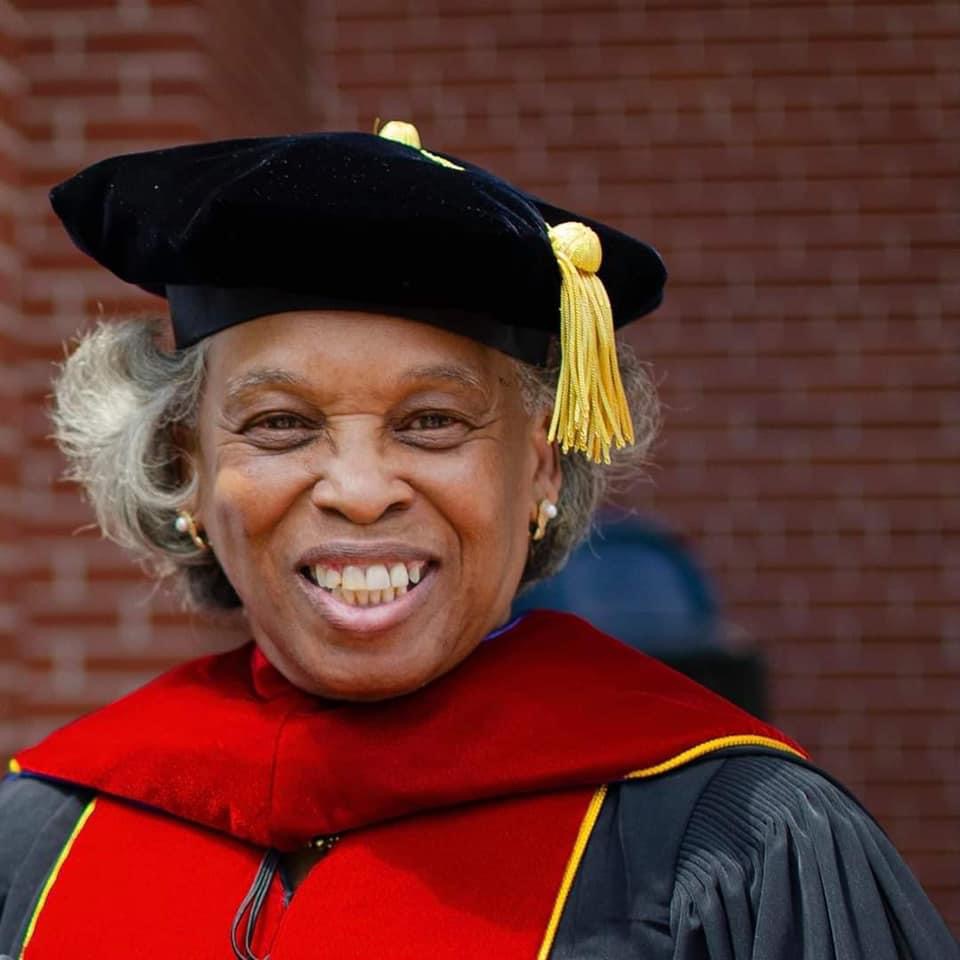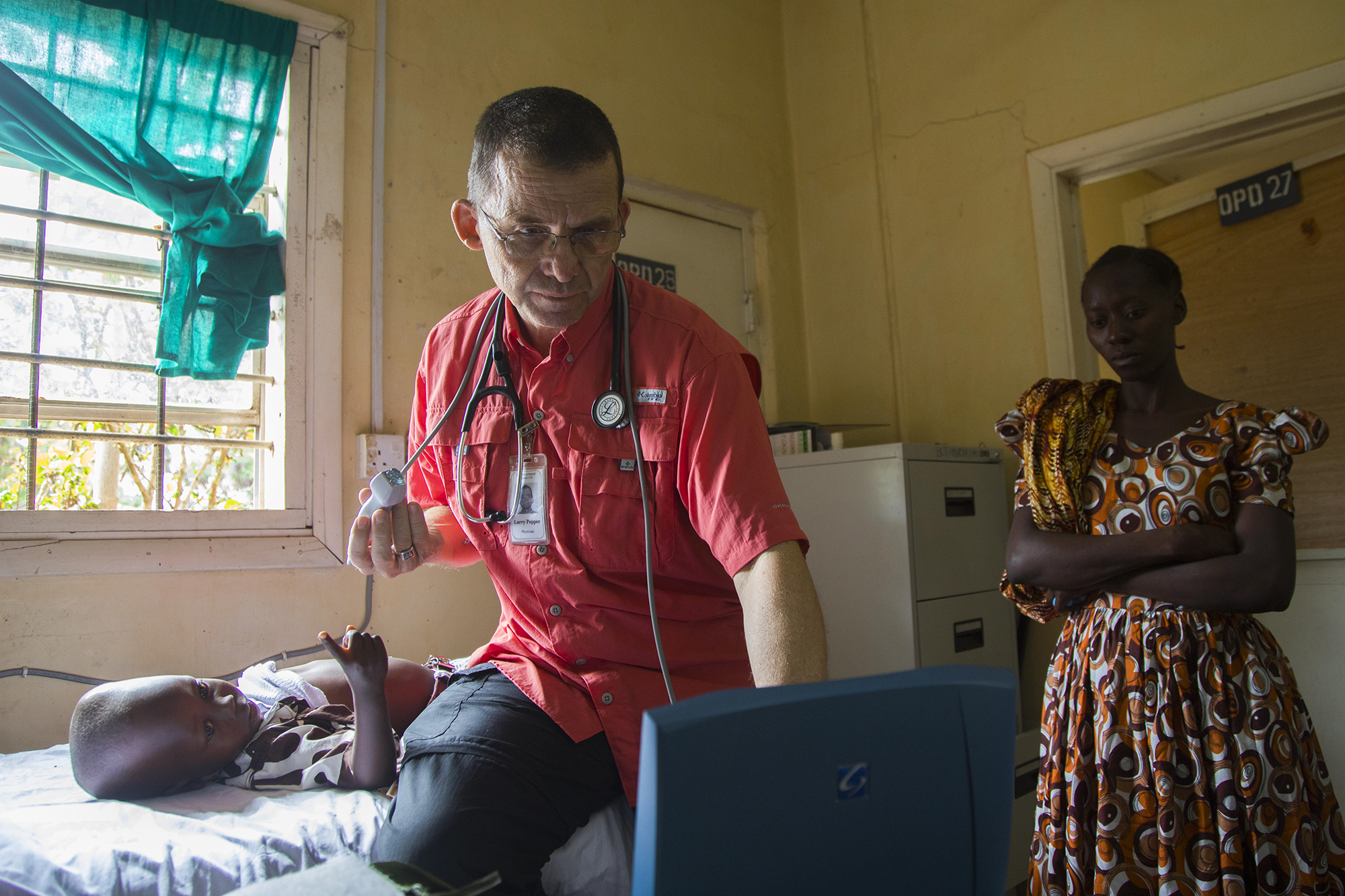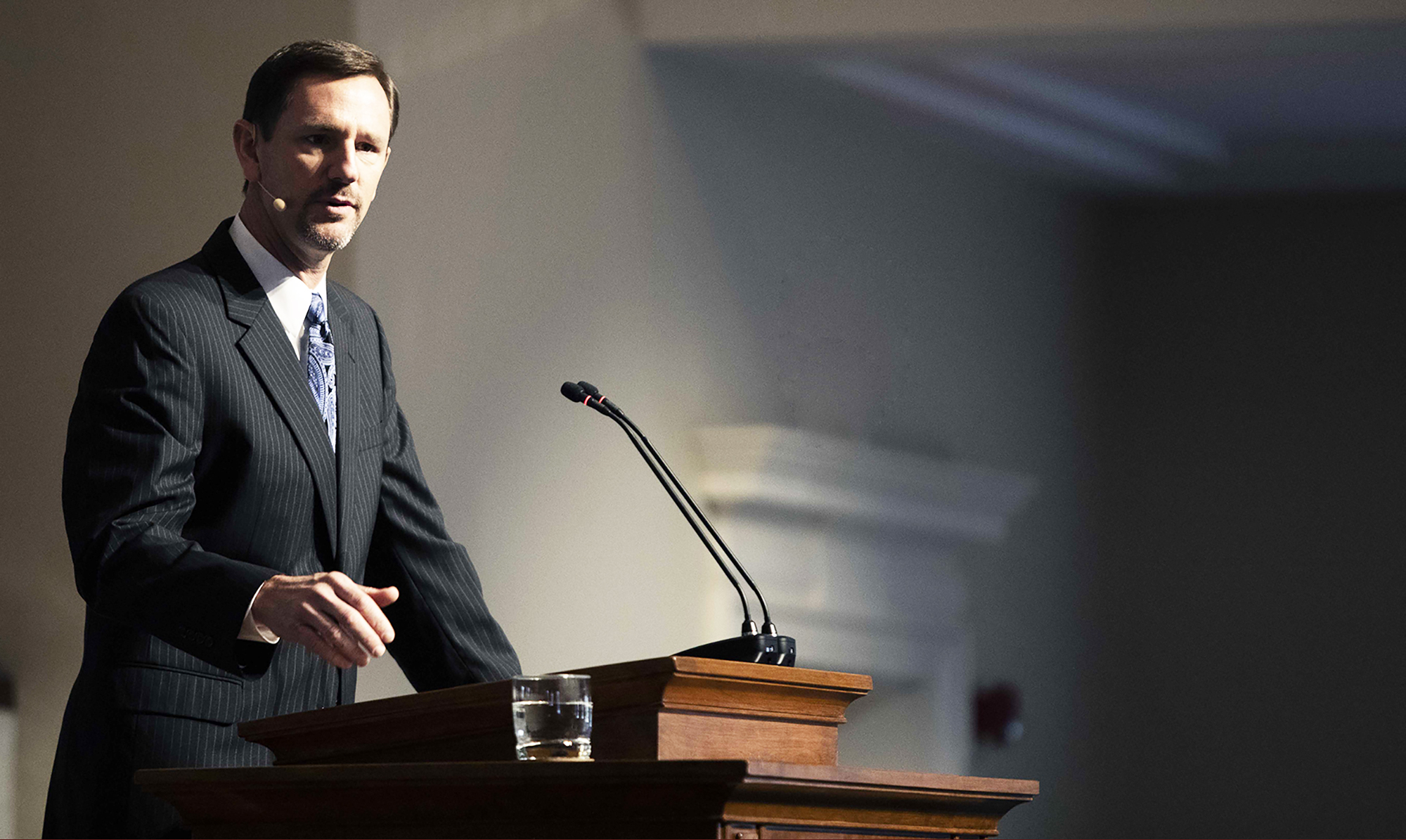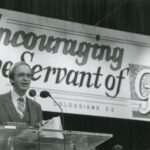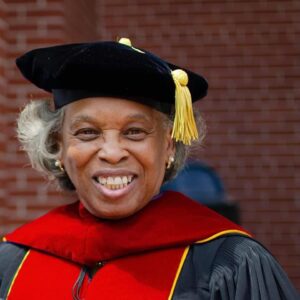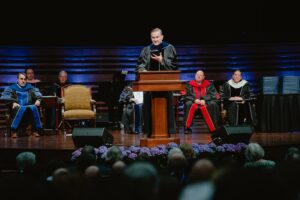
NEW ORLEANS (BP) – Stephanie Friend, who began a new career in chaplaincy after earning her Doctor of Ministry just shy of her 72nd birthday in 2021, doesn’t see life in numbers, but in seasons ordered by God.
Having completed a chaplain residency after graduation from New Orleans Baptist Theological Seminary (NOBTS), she entered fulltime chaplaincy at Baptist Community Ministries (BCM) of New Orleans in September 2022.
She begins most days at 5:30 a.m., assigned to the Orleans Parish Communications District where 911 calls arrive from people desperate for care.
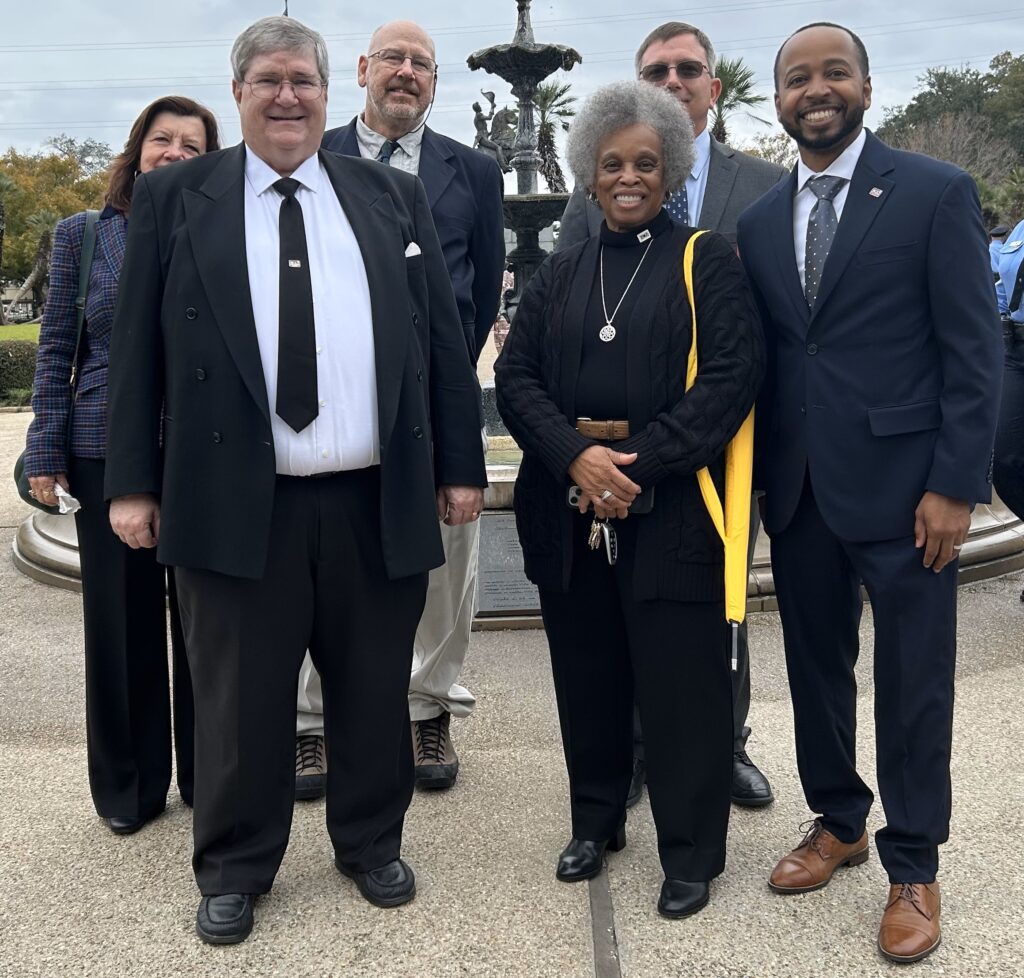
When an attacker drove a truck past barricades and into a crowd of predawn New Year’s celebrants on New Orleans’ iconic Bourbon Street, a 75-year-old Stephanie received a notice on her phone before her workday began. She followed her tried and true routine and arrived on the scene between 4:30 and 5 a.m., as she recalled.
“It doesn’t take me long,” Stephanie told Baptist Press. “I always have an outfit on the door, hanging on the door in the bedroom so I wouldn’t have to look for anything to put on.”
This July, she’s set to begin new studies at NOBTS to earn a Doctor of Education, anticipating graduation in 2029. All of this while serving in ministry as wife of Jeffery Friend, senior pastor of Suburban Baptist Church in New Orleans.
“I don’t think of my life anymore in terms of years but in terms of seasons,” Stephanie told Baptist Press.
Stephanie sensed a call to chaplaincy more than a quarter of a century ago while working as a police officer with the Orleans Levee District Police Department, where she rose to the rank of lieutenant, commanding the community policing unit in New Orleans East.
“I think I stayed there too long because I could feel a call to something else, just didn’t know what that was,” she said. “But I learned a lot of things from the police department. And I do think that kind of prepared me for going out on the calls that I do now.”
Larry Johnson, BCM vice president of chaplaincy services, sees benefits in Stephanie’s law enforcement career, he told Baptist Press, as she is the only chaplain on the BCM team with such experience.
“Consequently, she understands the pressures of professional law enforcement in ways that the rest of us do not,” he said. “She’s able and willing to coach the rest of the team about those pressures to enable us to minister more effectively to police officers. When she advises the team, she does so with an incredible amount of patience and collegiality.”
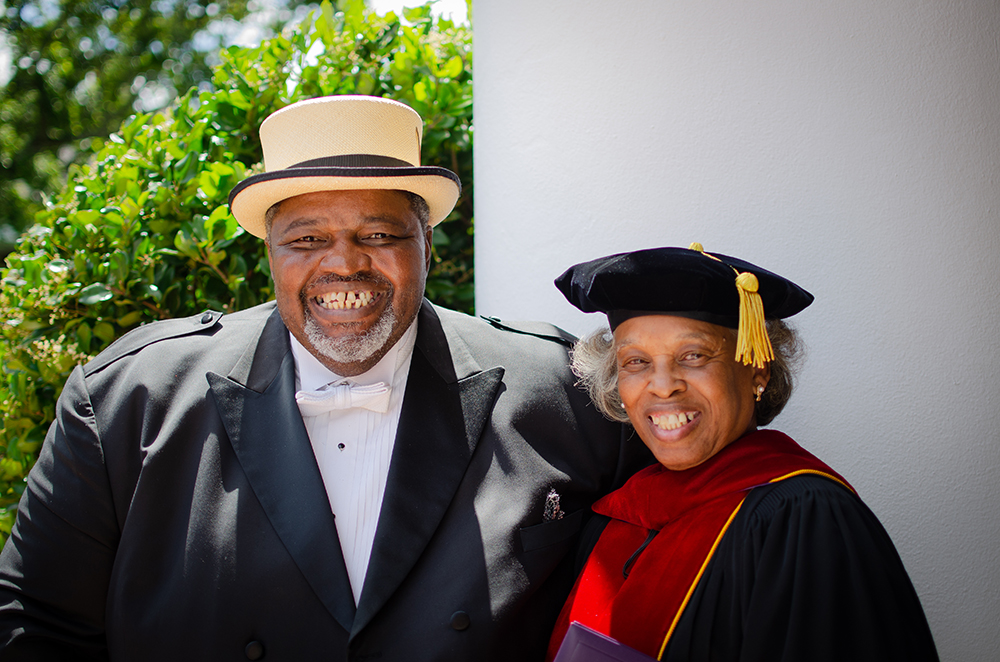
She was first assigned to the New Orleans Police Department when she joined BCM before being transferred to the call center. At first, emergency call center employees didn’t think they needed a chaplain, Johnson said, but they quickly saw the benefits of having Stephanie on hand.
“Stephanie is willing and able to effectively practice ministry in challenging contexts. For example, she experienced considerable resistance when she was assigned to the emergency call center,” he said. “Despite the resistance, Stephanie navigated the resistance with faith in God, compassion for the telecommunicators and confidence in her professional competence. Now, the emergency call center staff can’t imagine where they would be without her ministry. In fact, one leader commented that Stephanie’s ministry has a significantly positive impact on the call center’s staff retention.”
Her first foray into chaplaincy had actually come during her time at the Orleans Levee District Police Department in the 1990s when two levee district officers died – not in the line of duty – and her supervisor asked her to assist the families.
She wondered why her chief would ask her to do such a thing. Turns out, her reputation preceded her. She was enrolled in a small seminary and was known to pray.
“I was the seminary girl. I was the one who prayed all the time. So in serving those two families, it just gave me a kind of a satisfaction when I did that,” Stephanie told Baptist Press. “And that led to the formation of an honor guard for officers who had died in the line of service, that there were eight of us who would go to funerals and things like that when officers were killed in the line of duty.”
She enrolled fulltime at NOBTS in 2000, earning an undergraduate degree before completing a Master’s in Christian Education.
Shortly after enrolling, she met her future husband Jeffery. He recognized a call upon Stephanie’s life, he said.
“I met my wife at the birth of her yielding to her call. The seed was planted in her when the two officers died – which lay people will call – that’s when she was called, but she yielded to that call in 2000,” Jeffery told Baptist Press. “That’s when I met her. And ever since the day that I met her, she had told me about the stirring. I knew that the Spirit was moving in that way. That’s why I was not surprised when she acknowledged the seed that was planted prior to us meeting.”
Years after their marriage in 2006, she took a break from seminary to allow Jeffery to complete his doctorate, returning to complete her degree. Her journey from calling, to graduation, to employment – more than 20 years, but her mind was set on her goal.
“I think when you experience a call and you’re just obedient to it, it’s not easy to always be on track,” she said. “But even when I fell off, I always had people around me that encouraged me to just get back at it.
“I just think it’s a matter of deciding that this is a call that God has placed on your life and you are going to do. If you’re going to be obedient and do what He’s called you to do, then you have to take the steps,” she said, “and they don’t go in any kind of haphazard way. You take the steps in order in the way they go. And as far as the time is concerned, it just passed.”
She decided to pursue a doctorate in education when she was enrolled in her Clinical Pastoral Education Residency (CPE) residency at East Jefferson. There, she had difficulty grasping some of the concepts required for certification, which she eventually mastered.
“The research for my degree, which still has to be refined, will focus on how I can close that gap in the CPE curriculum and provide a more detailed study of these concepts at the university level or use my research to assist my employer in chaplaincy training,” she said.
Perhaps she’ll teach at a university, seminary or Christian college when she graduates, she said, which would be around age 79 or 80. But she’s not focused on the years.
“I am not unaware of how my age at the time of graduation may affect my aspirations, but what I do know is that God has done great works through ‘senior citizens,’” she said. “I look forward to how He will continue to use me in this season.”
